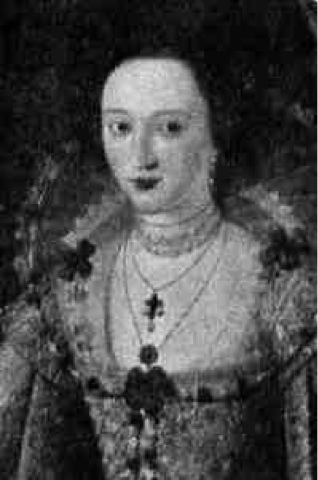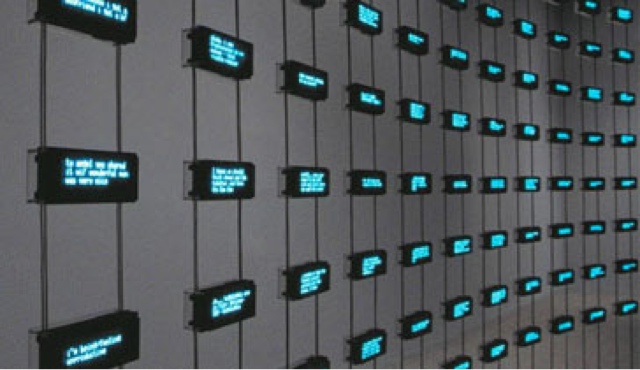In preparation for our Duchess of Malfi presentations for Scene Study, I have spent some time looking at various sources. Some essays or books on the subject of the Play or women in that period, and also historical texts. One I came across was Early Modern Women Poets: An Anthology Edited by Jane Stevenson and Peter Davidson. This anthology is fairly new, published in 2001, and I found it particularly helpful as it contains a wide variety of female poets, both aristocratic and working class, chronologically from around 1500 to 1700, and holds some biographical and contextual information.
Some specific ones that stood out (tho I am not sure whether any of this will bleed into my work....)
Anne Kyme nee Askew - 1521-1546 -
The Balade Which Anne Askew made and Sange whan she was in Newgate
Lyke as the armed knyght
Appoynted to the fielde
With thys world wyll I fyght
And fayth shall be my sheilde.
faythe is that weapon stronge
Whych wyll not fayle at nede
My foes therfor amonge
Therewith wyll I procede.
As it is had in strengthe
And force of Christes waye
It wyll prevayle at lengthe
Though all the devyls saye naye.
faythe in the fathers olde
Obtayned ryghtwysnesse
Which make me verye bolde.
To feare no worldes dystresse.
I now rejoyce in hart
And hope byd me do so
For Christ wyll take my part
And ease me of my wo.
Thu sayst lorde, who so knocke
To them wylt thu attende
Undo therfor the locke
And thy stronge power sende.
More enmyes now I have.
Than heeres upon my heed
Lete them not me deprave
But fygght thy in my steed.
On the my care I cast
For all their cruell spyght
I sett not by their hast
For thu art my delyght.
I am not she that lyst
My anker to lete fall
For euerye drysling myst
My shyppe substancyall.
Not oft use I to wryght
In prose nor yet in ryme
Yet wyll I shewe one syght
That I sawe in my tyme.
I sawe a ryall trone
Where Justyce shuld have sytt
But in her stede was one
Of modye cruell wytt.
Absorpt was ryghwysnesse
As of the ragyng floude
Sathan in his excesse.
Sucte up the gyltelesse bloude.
Tan thought I, Jesus lorde
Whan thu shald judge us all
Harde is it to recorde
On these men what wyll fall.
Yet lorde I the desyre
For that they do to me
Lete not them tast the hyre
Of their inyquyte.
(1547)
Lady Mary Wroth - 1587-1652
Sonnet II
Love like a Jugler comes to play his prize,
And all mindes draw his wonders to admire,
To see how cunningly he (wanting eyes)
Can yet deceive the best sight of desire.
The wanton Childe, how can he faine his fire
So prettily, as none sees his disguise,
How finely doe his trickes; while we fooles hire
The badge, and office of his tyrannies.
For in the ende such jugling he doth make,
As he our hearts instead of eyes doth take;
For men can onely by their flights abuse
The sight with nimble, and delightfull skill,
But if he play, his gaine is our lost will,
Yet Child-like we cannot his sports refuse.
(1621)
Anne Finch - Countess of Winchilsea - 1661-1720
A letter to Daphnis
Sure of successe, to you I boldly write,
Whilst Love, does every tender line endite.
Love, who is justly President of verse,
Which all his servants write, or else rehearse.
Phoebus, how'ere mistaken Poets dream,
N'er us'd a Verse, 'till Love became his theam,
To his stray'd Son, still as his passion rose
He rais'd his hasty voyce, in clamerous prose,
But when in Daphne, he wou'd Love inspire,
He woo'd in verse, sett to his silver lyre,
In moving Verse, that did her heart assail,
And cou'd on all, but Chastity prevail.
The Trojan Prince, did pow'rfull numbers joyn,
And sleeping Toy, again in flames was drest,
To raise the like, in pittying Dido's breast.
Love, without poetrys refining aid,
s a dull bargain, and but coursly made;
Nor e're cou'd Poeetry, successful prove
Or touotch the soul, but when the sence was Love.
Oh! cou'd they both, in absence now impart
Skill to my hand, but to describe my heart.
Then shou'd you see, impatient of your stay,
Soft hopes contend, with fears of sad delay.
Love, in a thousand pleasing motions, there,
And lively images of you appear.
But since the thoughts, of a poetick mind,
Will n'er be half, to sulables confind,
And whilst to fix, what is conceav'd we try,
The purer parts, evaporate and dye.
You must perform, what they want force to doe,
And think, what your Ardelia thinks of you.
(1690)


